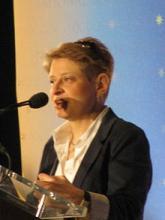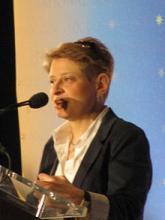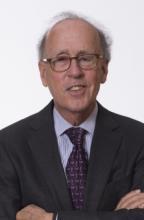The Poverty of AI Pessimism
LONDON – Hardly a week goes by without various pioneers in artificial intelligence issuing dire warnings about the technology that they introduced to the world. I got an early glimpse of this emerging pessimistic consensus a couple of months ago, when I attended a dinner with some AI experts who suggested that millions of relatively sophisticated, high-paying jobs could be at risk. I came away asking if this bleak outlook is really justified.
I have my doubts. Since the start of my professional life in the 1980s (and of course for much longer), technological progress has repeatedly been held up as a major threat to jobs in key industries such as automobile manufacturing. Yet until the Brexit debacle, the United Kingdom was producing more vehicles than it did in the supposed heyday of the auto industry, owing to the role of sophisticated new technologies in boosting leading producers’ core businesses. In the northern English port city of Sunderland, Nissan currently operates one of the most productive auto plants in the world.
Likewise, despite German autoworkers commanding relatively higher nominal wages, the country’s carmakers have managed to adapt and thrive for decades, competing globally and helping to satisfy a growing global middle class’s demand for high-quality performance vehicles. Yes, German auto companies face their biggest challenge yet with the global transition to electric vehicles, and the slowdown in China implies weaker growth in the short term. But if the past is any guide, the industry could adapt and emerge even stronger in the future.
AI doomsayers also ignore the fact that populations are aging fast across most of the developed world and many major developing and emerging economies. With the growth of the labor force slowing at a time when people are also living longer, there will be more and more pressure on smaller working-age populations to finance pensions, health care, and other (typically) nondiscretionary commitments.
Unless this smaller working population can become more productive, the economy’s growth performance will struggle. Japan and Italy are two stand-out examples of this trend from the past few decades, but they are hardly alone. Among others, China, South Korea, and most of continental Europe are in the same boat. While immigration offers a partial solution, it is an increasingly charged political issue. Productivity-enhancing AI applications could be precisely what is needed.
Moreover, just look at what has been happening at the UK’s treasured National Health Service, which is eating up ever more of the country’s finances. The NHS employs more people than ever, yet it is becoming less and less productive. We in the UK are exposed to endless horror stories about the NHS’s failings and what they mean for citizens seeking care.
Having dug into this issue as a member of the Times Health Commission, it is obvious to me that the NHS needs a dramatic uptake of modern technology to help with simple tasks (such as getting one computer system to talk to another), as well as more complicated ones. For example, embedding high-speed, AI-augmented diagnostics across the system could help to detect disease risks and provide earlier treatment – preferably through pharmacies or general practitioners. Such interventions would vastly improve both productivity and quality of care.
We already have early but extremely powerful evidence of what AI could do for public health globally. According to a May 25 BBC story, a group of scientists in Canada and the United States have used AI to discover a new antibiotic that is proving effective (so far) against Acinetobacter baumannii, one of the known antimicrobial-resistant superbugs on the World Health Organization’s watch list.
Having led the UK’s independent Review on AMR from 2014 to 2016, I am highly encouraged by this development. The drug will still have to go through the usual clinical trials, which is a lengthy and expensive process. But if all goes well, it will be the first time in decades that we have acquired a genuinely effective antibiotic for use against deadly superbugs. Now imagine what else AI could do just in the realm of medicine – from helping to discover or develop vaccines for hitherto unpreventable diseases to streamlining the clinical-trial process more broadly.
Of course, the AI experts are surely correct that we will need guardrails and high standards of regulation, lest this latest wave of innovation cause social, political, and economic havoc. The current era of round-the-clock social media, clickbait, and fake news has little to recommend it, and makes much of the pessimism understandable. But that is no reason to ignore the obvious, massive potential benefits of AI.
Jim O’Neill, a former chairman of Goldman Sachs Asset Management and a former UK treasury minister, is a member of the Pan-European Commission on Health and Sustainable Development.
Copyright: Project Syndicate, 2023.
www.project-syndicate.org
This article is brought to you by Project Syndicate that is a not for profit organization.
Project Syndicate brings original, engaging, and thought-provoking commentaries by esteemed leaders and thinkers from around the world to readers everywhere. By offering incisive perspectives on our changing world from those who are shaping its economics, politics, science, and culture, Project Syndicate has created an unrivalled venue for informed public debate. Please see: www.project-syndicate.org.
Should you want to support Project Syndicate you can do it by using the PayPal icon below. Your donation is paid to Project Syndicate in full after PayPal has deducted its transaction fee. Facts & Arts neither receives information about your donation nor a commission.





















